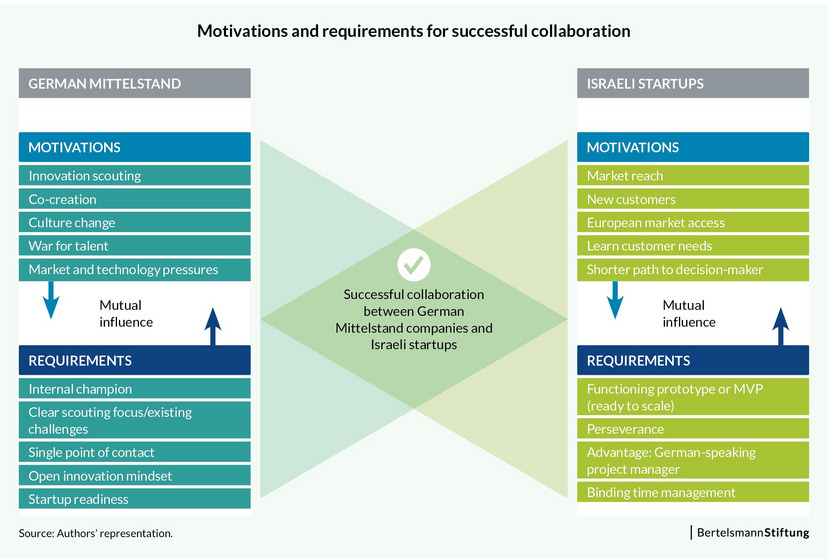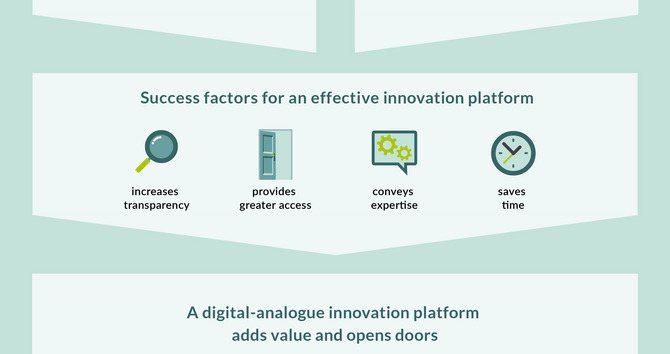Germany will have to continue increasing its innovative capacity if it wants to stay competitive in a world undergoing rapid technological change. The companies that make up the country’s Mittelstand – midsized to large enterprises with sales of over €50 million and more than 250 employees – frequently have long histories, are often run by family owners and tend to focus on international markets. They also have a great need for innovation. As of 2018, there were 3,394 such companies in North Rhine–Westphalia alone.
With over 6,000 startups, Israel is considered one of the globe’s leading startup hubs. It even has the highest number of startups per capita worldwide. In addition, it is home to many talented, highly educated individuals with innovative know-how and a pronounced entrepreneurial spirit. At the same time, the country is looking for partners that can help it become active in foreign markets. There are a number of areas in which Germany and Israel could cooperate to their mutual advantage: Industry 4.0, the Internet of Things, artificial intelligence and cyber applications, to name just a few.
It is currently a good time to identify new partners and deepen existing relationships. Israel’s startup ecosystem is changing, transforming the Startup Nation into the Scale-Up Nation. Israeli startups offer market-ready products in high-tech sectors – products that Germany’s Mittelstand needs. The startups are looking for access to markets in which they can scale up their operations – access that Germany’s Mittelstand can provide.






